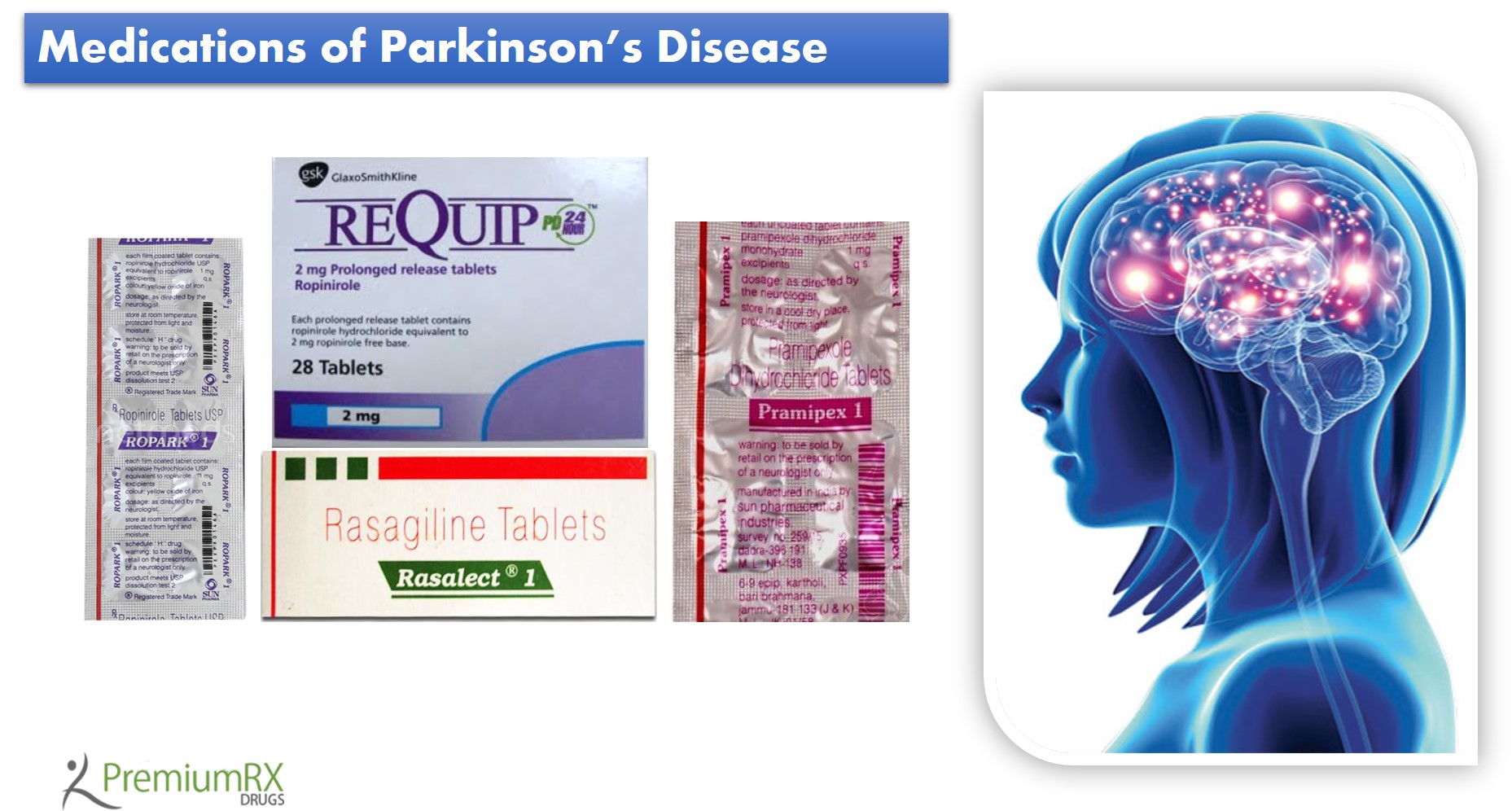Numerous medications are available for the management of symptoms of Parkinson’s disease. All of these are specially formulated to ease symptoms and improving quality of life. Currently, there is no cure or therapy that has been proven to stop disease progression.
Medications are the key to control the symptoms of Parkinson’s. The symptoms of Parkinson’s develop when the level of dopamine (a chemical messenger), falls in the brain. Parkinson’s medications aim to increase the level of dopamine that helps in the stimulation of certain parts of the brain where dopamine functions. Current drug treatment can help to reduce the symptom; there is a treatment that can cure or stop the progression of this is a neurological condition.
Medications are specific to you
Every individual suffering with Parkinson’s disorder has a different condition, he/she experience different symptoms so, your health care specialist will find the treatment that works best for you after determining the condition of the patient. It takes time to find the best drug treatment. The appropriate dose and best timings, your health care specialist will need to do some changes along the way. Parkinson’s symptoms tend to change over time, due to which change of medication is required. The drug treatment will start at low doses and increased gradually. Your health care provider will gradually step up the dose, increases the frequency, or may introduce new medications to the treatment until you gain control over your symptoms. If you observe any changes or progression in your symptoms, it is important not to make any changes in your medication, or the treatment regimen without talking to your health care provider.
Medications for Parkinson’s
Drug treatment may help you manage problems with movements, and it can improve walking pattern and tremors. One can find a significant improvement after beginning Parkinson’s drug therapy. Medications that your health care provider may prescribe include:
- Carbidopa-Levodopa- One of the most effective medication, when it comes to managing Parkinson’s symptoms is Levodopa. It works as a natural chemical in your brain that passes and converted to dopamine in the brain. Levodopa is prescribed with Carbidopa, which stops levodopa to convert into dopamine early in the brain.
- Dopamine agonists- Th medications coms und this class of drugs don’t convert into dopamine, thy act like dopamine in the brain. In other words, we can say that they mimic the effects of dopamine in the brain.
- MAO inhibitors- These medications are helpful in break down of dopamine, by inhibiting MAO B enzyme, which metabolizes dopamine in the brain.
- Anticholinergics- These are extremely beneficial in controlling tremors associated with Parkinson’s.
The working mechanism of Parkinson’s disease
As mentioned above, the chemical messenger called dopamine is produced in the brain, which plays a crucial role in bin functioning and sending signals to other parts of the body. The symptoms of Parkinson’s develop when there is very less amount of dopamine in the brain. The low levels of dopamine may be because of the death of the cells in your brain that are responsible for producing dopamine. Most of Parkinson’s medications are administered to increase the levels of dopamine in your brain. Some acts as a substitute for the chemical messenger by stimulation the brain part where dopamine acts. The drugs also block the action of certain enzymes that lead to dopamine break down.
Understanding your drug therapy
Ask your health care provider if there is anything related to the use of your drug treatment that you don’t understand. Your health care provider will briefly explain you everything related to your dose regimen. You can even ask for written information, and they would not mind. Make sure you know everything about your Parkinson’s medications. You should know what to do if you mistakenly miss a dose. However, it will be good for your health not to miss any dose. Remember the thing that Everyone with Parkinson’s is different so it is not possible that your medication, dose, and timings should be the same as someone you know with the condition.
Share decisions with your health care provider about your medications
It is important to let your health care provider know if you are suffering from any other medical condition, or if you think you have conceived. You must tell your health care specialist about any side effects if you are experiencing with your Parkinson’s medication that you are taking to ease the symptoms. Do not discontinue or stop taking the drug until you have spoken to your health care provider s this can be life-threatening.
Marie
Latest posts by Marie (see all)
- Guide for Careprost as Eyelash Enhancer – Benefits, Usage, Side Effects - July 3, 2025
- Eptoin 50mg Uses, Precautions and Side Effects - July 1, 2025
- Eyelash Goals Unlocked: Why Careprost Is the Ultimate Solution. - June 30, 2025




